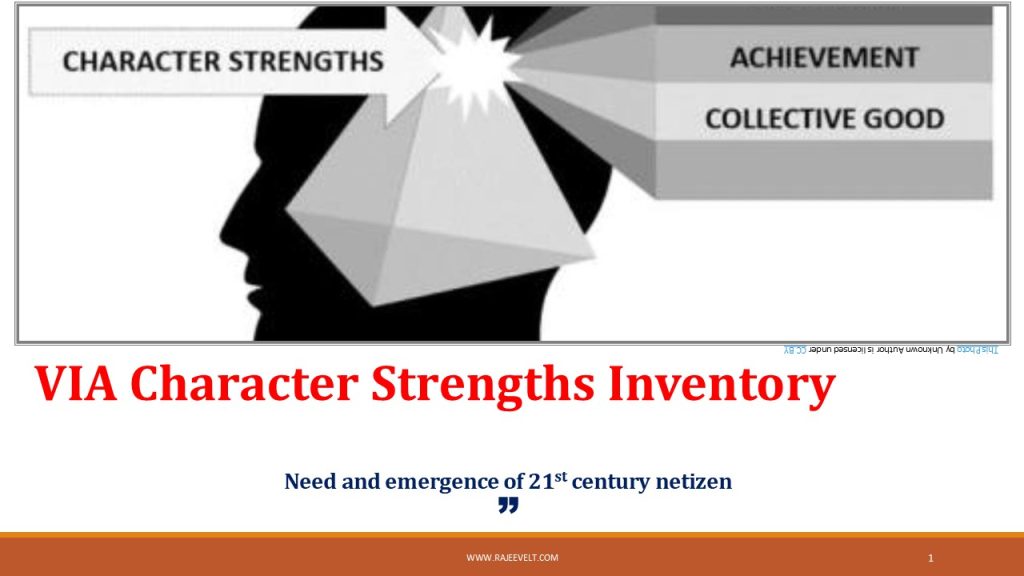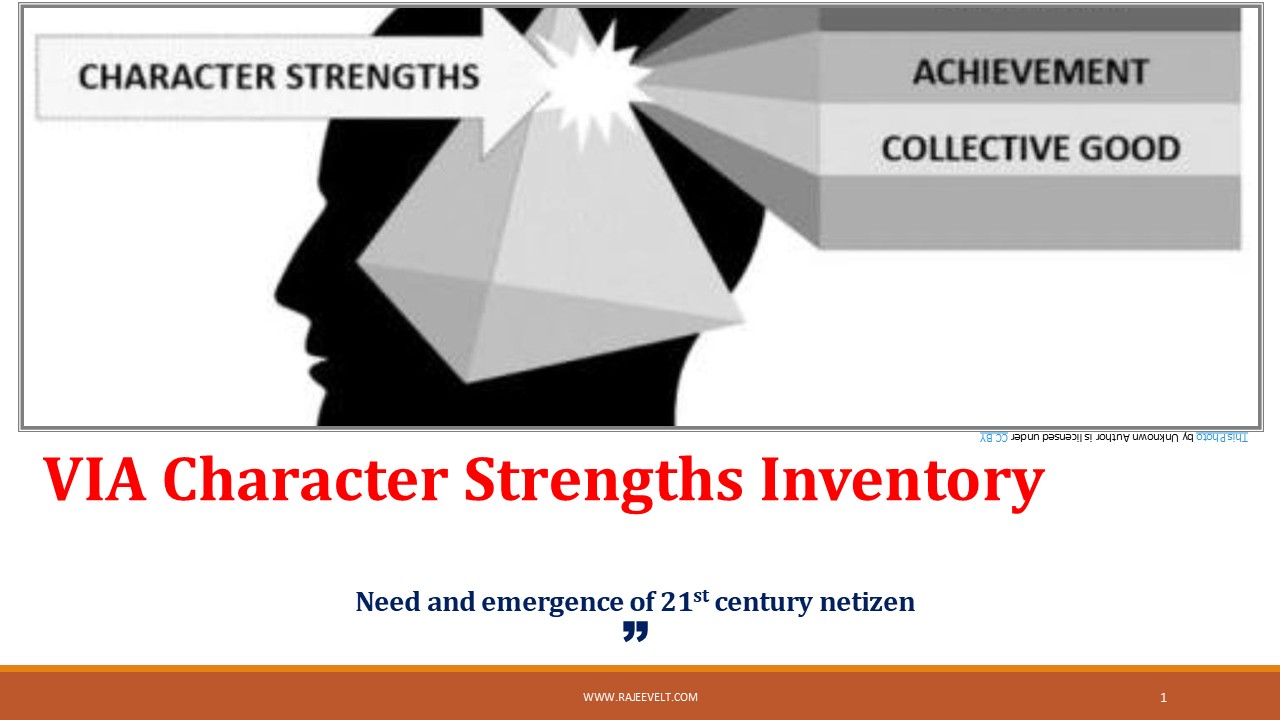VIA Character Strengths Inventory
1. What is VIA Character Strengths Inventory?
The VIA Character Strengths Inventory is a scientifically validated questionnaire developed to identify a person’s positive traits—called character strengths. These are not skills or talents (like singing, coding, or sports), but deeply rooted qualities of personality that influence how we think, feel, and behave.
It was created by:
- Dr. Martin Seligman (founder of Positive Psychology)
- Dr. Christopher Peterson (psychologist and co-author of Character Strengths and Virtues)
Together, they classified 24-character strengths that are universally valued across cultures, religions, and philosophies.
Key Points:
- It is a psychometric self-assessment questionnaire designed to help individuals identify their top character strengths out of 24 universal strengths.
- These strengths are rooted in virtues valued across cultures, religions, and philosophies worldwide.
- The inventory provides a ranked list of strengths, showing which are most dominant in a person’s life and which are less naturally expressed.

2. Why is it important?
- Helps individuals discover what makes them strong, rather than focusing only on weaknesses.
- Builds self-awareness and positive identity.
- Provides a foundation for personal growth, resilience, and well-being.
- Widely used in education, leadership development, counseling, and coaching.
3. The 24 VIA Character Strengths
The strengths are grouped under six universal virtues.
(A) Wisdom & Knowledge – Cognitive strengths help us think and learn
- Creativity – Thinking of new and productive ways to do things.
- Curiosity – Interest in exploring new ideas and experiences.
- Judgment – Open-mindedness; making decisions by examining evidence.
- Love of Learning – Enjoying acquiring new skills or knowledge.
- Perspective – Seeing the bigger picture and giving wise advice.
(B) Courage – Emotional strengths help us face challenges
- Bravery – Facing difficulties and speaking up for what’s right.
- Perseverance – Finishing what you start despite obstacles.
- Honesty – Speaking the truth; acting with integrity.
- Zest – Living life with enthusiasm and excitement.
(C) Humanity – Interpersonal strengths help us care for others
- Love – Valuing close relationships and sharing warmth.
- Kindness – Doing Favors and good deeds for others.
- Social Intelligence – Understanding feelings and motives of self and others.
(D) Justice – Civic strengths help us live in community
- Teamwork – Working well as a member of a group.
- Fairness – Treating all people equally and without bias.
- Leadership – Encouraging a group while maintaining good relations.
(E) Temperance – Strengths that protect from excess
- Forgiveness – Forgiving those who have done wrong.
- Humility – Letting accomplishments speak for themselves.
- Prudence – Being careful about one’s choices; not taking undue risks.
- Self-Regulation – Controlling emotions and behaviors.
(F) Transcendence – Strengths that connect us to meaning
- Appreciation of Beauty & Excellence – Noticing and appreciating excellence and beauty in life.
- Gratitude – Being aware of and thankful for good things.
- Hope – Expecting the best and working to achieve it.
- Humor – Liking to laugh and joke; seeing the light side of life.
- Spirituality – Having coherent beliefs about life’s higher purpose.
3. How Does the Inventory Work?
- Format: Around 120–240 questions (depending on the version).
- https://www.viacharacter.org/
- Time: 15–20 minutes.
- Result: A personalized profile ranking your 24-character strengths from strongest to least expressed.
- Free Access: Available at VIA Institute on Character
- Develop balance – Learn to manage “overuse” or “underuse” of strengths.
Resources and References



